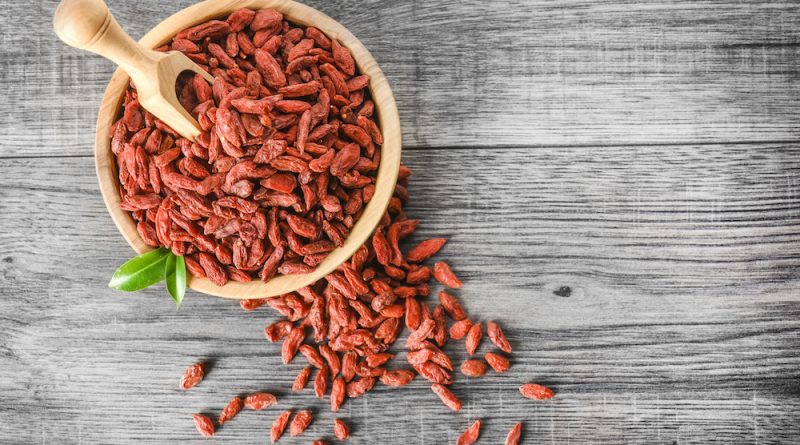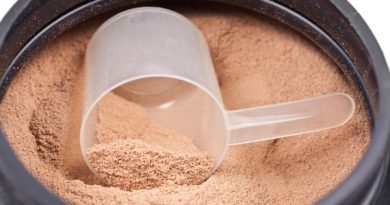The Ultimate Betaine Guide: Everything You Need to Know
Some of you might be reading this article to find out what the heck betaine is. Others may be reading this to get a better understanding of how to use betaine in their supplementation regimen and the benefits that can be had from it. For that reason and for a lack of better term, we can consider this an ultimate guide. Below will lay out some groundwork as well as some very important information to grasp and understand before supplementing with this particular ingredient.
Disclaimer: This article is for informational purposes only and is not meant to treat or diagnose any condition. It is recommended that you speak with your doctor before starting any exercise program, changing your daily nutrition, or adding any supplements to your regimen.
Table of contents
What is Betaine?
Betaine is an amino acid and is also referred to as trimethylglycine (TMG). As some of you might have guessed by now, it can be found in various foods we consume such as beets (hence the name). Betaine is also considered an osmolyte which has the function of maintaining fluid balance between the inside and outside of cells. When fluid balance on the inside or outside of cells is not stable, it can actually cause the cells to burst or die. When this happens, it can create various health issues.
Supplementing with betaine has many various health benefits as well as performance benefits. It’s for that reason that you may see it popping up in supplement formulas.
Is there a need for you to supplement strictly with betaine? That’s actually a tough question to answer definitively. If you are a performance athlete or someone who exercises regularly, there are definitely benefits to supplementing with betaine. If you don’t exercise or aren’t a performance athlete does that mean there’s no need or benefit to supplementing with such an ingredient? That answer is no. But, being that you’re on this site, we can assume you exercise regularly.

Betaine is found in wheat products, which American’s generally have no problem consuming from their diet. So naturally, if you consume products like wheat, beets, quinoa, certain meats and poultry (like turkey breast, beef, and veal), sweet potatoes, and spinach in high quantities you’ll be taking in betaine. Not that I’m condoning drinking alcohol, but betaine is also present in beer and wine. However, that’s not to say that the quantity of betaine you are consuming through your nutrition is enough to provide you with the health benefits that we will get into shortly.
What Benefits Can Betaine Provide for You?
The first benefit that many people will definitely be excited about is its ability to help improve lean muscle gains, aid in body recomposition, and enhance strength[1]. Such benefits can only be had through consistent supplementation with betaine. This ingredient is not one that you will see immediate health and muscular results from the very first dose.
However, with that being said, betaine can help increase nitric oxide levels[2] from the first dose. By improving vasodilation, you have the ability to help shuttle nutrients into the working muscles to improve performance and recovery as well as helping you achieve a pump during your workout.
Another benefit to supplementing with betaine is the fact that when combined with a caloric deficit, higher rates of fat burning were apparent. When a test group was compared to a control group, it was found that the test group who was given betaine supplements had a greater ability to metabolize protein and were found to lose more overall body fat compared to the group who did not receive any at all.

When you combine the benefits we just mentioned, you are placed in a position where you have the ability to not only increase your lean muscle mass, which will also help you burn stubborn body fat, but when you supplement with betaine it can also directly help you shed off body fat as well. For those looking to improve their physique or those who compete in fitness competitions, this could give you the edge needed to look your best and achieve your physique goals faster when compared to those not using betaine.
An important part of putting on lean muscle mass is to ensure that you are properly digesting your food so that it can be absorbed by the body and utilized by the muscles to enhance recovery. When you aren’t able to break down your food effectively, you limit your muscle-building potential. For that reason, betaine has been found that when supplemented with can actually alleviate many various digestion issues[3] that individuals may be faced with. This can not only help with your muscle-building efforts but can also help the overall health of the digestive tract itself.
Exercising at a high level can create aches and pains. This can be a nuisance and hurt your ability to train intensely. It has been found that supplementing with betaine can help alleviate these muscular aches and pains as well as mitigate lactic acid in the working muscles – this can help you train harder and longer.
Betaine, however, isn’t only used for its muscle-building capabilities and body recompositioning. In fact, it has some heart, liver, and kidney benefits as well. When using betaine consistently, it has the ability to lower the risk of heart disease[4] by helping to prevent hardening of the arteries. Overall, this can help lower your overall risk of things such as strokes and heart attacks. Then, when it comes to your liver, supplementing with betaine can help detox the liver by breaking down fat and then removing it. Fat tends to accumulate in your liver if you are overweight/obese, drink heavily (alcohol), or suffer from diabetes. When you add betaine to your supplement regimen, you have the ability to improve liver function and improve your overall health. The kidneys are in essence a filter for your body. When they become damaged, illness can certainly follow. Betaine has the ability to protect the kidneys by lowering uric acid levels[5].
More and more research is being conducted all the time and I can only suspect that as time passes, we will find more powerful and amazing benefits from utilizing betaine.
Can Anyone Take This Supplement?
Betaine supplements, also known as trimethylglycine (TMG), are generally considered safe for most people when taken in appropriate doses. However, it’s always wise to consult with a healthcare professional before starting any new supplement regimen, especially if you have any pre-existing health conditions or are taking medications.
Some groups of people may need to exercise caution or avoid betaine supplementation altogether:
- Pregnant or breastfeeding women: There is limited research on the safety of betaine supplements during pregnancy and breastfeeding, so it’s best to err on the side of caution and avoid them unless recommended by a healthcare provider.
- Individuals with kidney problems: Betaine is excreted by the kidneys, so individuals with kidney problems should use betaine supplements cautiously and under medical supervision.
- Allergic reactions: While rare, some individuals may be allergic to betaine. If you have a known allergy to betaine or any similar compounds, you should avoid betaine supplements.
- Interactions with medications: Betaine supplements might interact with certain medications, such as those used to manage high blood pressure. Always consult with a healthcare provider to ensure that betaine supplements won’t interfere with any medications you’re taking.
As with any supplement, it’s important to use betaine in moderation and follow recommended dosages. Excessive intake of betaine could potentially lead to side effects such as gastrointestinal discomfort, diarrhea, or nausea.
How Should You Take Betaine Supplements?

When taking betaine supplements, it’s essential to follow the recommended dosage guidelines provided by the manufacturer or your healthcare provider. Typically, betaine supplements come in capsule or powder form. Here are some general guidelines for taking betaine supplements:
- Dosage: The recommended dosage can vary depending on the individual’s age, health status, and specific needs. It’s crucial to follow the dosage instructions provided on the supplement label or as directed by your healthcare provider.
- Timing: Betaine supplements are commonly taken with meals. Taking them with food can help enhance absorption and minimize the risk of gastrointestinal discomfort.
- Hydration: Ensure you’re adequately hydrated when taking betaine supplements, as they may have a mild diuretic effect.
- Consistency: For optimal results, it’s essential to take betaine supplements consistently as part of your daily routine. Missing doses or irregular usage may impact the effectiveness of the supplement.
- Monitoring: Pay attention to how your body responds to betaine supplementation. If you experience any adverse reactions or unexpected side effects, discontinue use and consult with a healthcare professional.
- Combination with other supplements or medications: If you’re taking other supplements or medications, consult with your healthcare provider to ensure there are no potential interactions between betaine and other substances you’re using.
- Duration of use: Betaine supplements can be used short-term or long-term, depending on individual health goals and needs. Your healthcare provider can provide guidance on the appropriate duration of use for your specific situation.
- Adjustments: If you experience any changes in your health status or if you’re starting any new medications or treatments, discuss with your healthcare provider whether any adjustments to your betaine supplementation regimen are necessary.
Always remember that dietary supplements like betaine are meant to complement a healthy lifestyle and should not be used as a substitute for a balanced diet or medical treatment when needed. If you have any questions or concerns about taking betaine supplements, consult with a qualified healthcare professional for personalized advice.
References:
- Cholewa, J. M., et al. (2013). Effects of betaine on body composition, performance, and homocysteine thiolactone. Journal of the International Society of Sports Nutrition. 10:39.
- Trepanowski, J. F., et al. (2011). The effects of chronic betaine supplementation on exercise performance, skeletal muscle oxygen saturation and associated biochemical parameters in resistance trained men. Journal of Strength and Conditioning Research. 25(12), 3461-3471.
- Yago, M. A., et al. (2013). Gastric re-acidification with betaine hcl in healthy volunteers with rabeprazole-induced hypochlorhydria. Molecular Pharmaceutics. 10(11), 4032-4037.
- Olthof, M. R., et al. (2005). Choline supplemented as phosphatidylcholine decreases fasting and postmethionine-loading plasma homocysteine concentrations in healthy men. American Journal of Clinical Nutrition. 82(1), 111-7.
- Liu, Y. L., et al. (2014). Betaine reduces serum uric acid levels and improves kidney function in hyperuricemic mice. Planta Medica. 80(1), 39-47.


*Disclosure: This article may contain affiliate links or ads, which means we earn a small commission at no extra cost to you if you make a purchase through these links. These commissions help support the operation and maintenance of our website, allowing us to continue producing free valuable content. Your support is genuinely appreciated, whether you choose to use our links or not. Thank you for being a part of our community and enjoying our content.
PLEASE CONSIDER SHARING THIS ON YOUR SOCIAL MEDIA TO HELP OTHERS LEARN MORE ABOUT THIS TOPIC.





